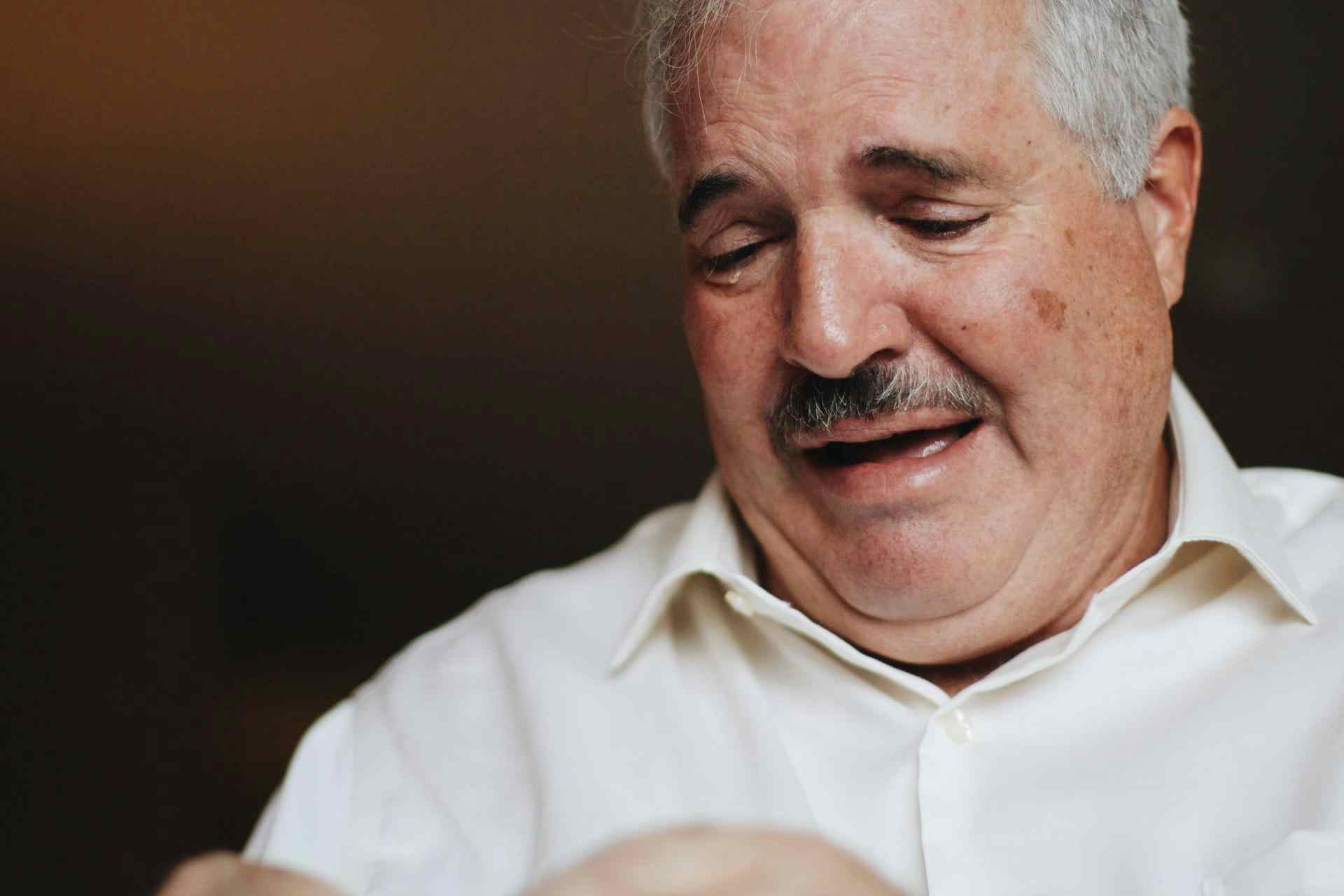For many of us, the fear of ageing is actually a fear of going into decline. Fear paints a bleak picture of the future. Growing loneliness as friends pass, an increasing inability to do the things we enjoy, and for some of us, the biggest fear of all - declining mental health that steals the present from us. Being aware of the risk factors and symptoms of dementia can help us prevent ever needing to experience them.
Dementia comes in a variety of ways and in itself is not a disease. Rather, dementia is a collection of symptoms that affect our ability to manage everyday life. For example, memory loss, difficulty carrying out everyday tasks or finding our words, mood swings and feeling confused about time and space are all aspects of different types of dementia.
We spoke to Dementia UK, who told Health Times: "Today, dementia is the leading cause of death in the UK. By 2025, more than one million people in the UK will be living with this often devastating condition. It’s a huge and growing health crisis. Every three minutes, someone in the UK develops dementia and there are currently over 900,000 people living with the condition in the UK.
"This number is expected to rise to 1.1m by 2030. If you need advice or support on living with dementia contact Dementia UK’s Admiral Nurse Dementia Helpline on 0800 888 6678 or email helpline@dementiauk.org.
"The Helpline is staffed by experienced Admiral Nurses, who give vital support by telephone or email. Alternatively, you can book a free video or phone appointment at a time that suits you to get expert dementia support from an Admiral Nurse. Find out more at www.dementiauk.org/closer-to-home."
The first signs of dementia
Caused by damage or loss of brain cells, dementia types are grouped together by symptoms or the part of the brain affected. Generally, the types of dementia we hear about from friends and the news tend to be progressive and irreversible.
If you suspect you're experiencing mental decline, it's essential to visit your GP for a proper diagnosis and dementia care. Some dementia-like symptoms can be caused by conditions that can be treated. For example, infections, side effects from medication, subdural hematoma caused by a fall or an excess of cerebral fluid that puts pressure on the brain can all create dementia-like symptoms. All are treatable.
Getting an early diagnosis of dementia has enormous benefits. Although learning you have a progressive and degenerative disease is difficult, finding out early provides you with the opportunity to make plans and have a say in your care.
Because there are different kinds of dementia, early signs vary. In addition, with each type of dementia comes a slightly different set of symptoms. Sometimes, older adults suffer from more than one kind of dementia.
Alzheimer's disease
The most common form of dementia, Alzheimer's disease, makes up around two-thirds of all dementia cases. Most people who develop this mental disease are over 65, and diagnosis involves several exams and diagnostic tests. Although home screening tests can be purchased, their accuracy is questionable, and they have been known to throw up false positives.
Early signs of Alzheimer's disease can be easy to miss. Similar symptoms can be experienced simply from lack of sleep or a stressful week. However, when memory loss and other symptoms disrupt daily life, it's time to look a little closer at the symptoms being experienced. Cognitive decline isn't a normal part of growing older.
Difficulty remembering events, concentrating, problem-solving or planning are just a few of the initial warning signs of Alzheimer's. Having trouble completing familiar, daily tasks such as grocery shopping or forgetting how to play a favourite game are other indications of Alzheimer's disease.
As Alzheimer's disease progresses, symptoms get worse. Personality changes, moodiness, needing help getting dressed, trouble with bladder and bowel control and an increasing tendency to wander and get lost are some of the mid-stages of dementia symptoms.
At this point of cognitive decline, family members can have difficulty taking care of their loved ones. Specialised caregivers or care homes are sometimes the most suitable option for assuring the well-being of older people with advancing Alzheimer's disease.
The US Alzheimer's Association and the UK Alzheimer's Society have much information about the many different types of dementia, advice for carers, and maintaining quality of life.
Vascular Dementia
As the name suggests, vascular dementia has to do with the network of blood vessels in the brain. Reduced blood flow around the brain results in less oxygen and nutrients reaching our grey matter. This causes cell damage that makes thinking difficult and impaired.
Symptoms for vascular dementia vary and can be brought on by stroke or a series of mini-strokes. Memory loss is often the first indication of damage, followed by confusion, disorientation, trouble speaking and understanding speech, headaches and poor balance.
Very early signs include:
- Impaired planning and judgment
- Uncontrolled laughing and crying
- Declining ability to pay attention
- Impaired function in social situations
- Difficulty finding the right words
This kind of dementia often occurs with other forms of the disease, creating mixed dementia whereby someone suffers from Alzheimer's disease or Lewy Body Dementia concurrently. Just 5 - 10% of vascular dementia cases are unaccompanied by other forms.
Frontotemporal Dementia
This type of dementia affects the front and temporal lobes of the brain. These areas of our brain house our executive functions. Speech and language, our ability to compare and categorise things, how we understand and respond to others' feelings and key characteristics of our personality are just a few of the activities this part of our brain manages.
Sometimes referred to as Pick's disease, frontotemporal dementia (FTD) is often caused by clumps of proteins forming inside brain cells. Although rarer than other kinds of dementia, FTD tends to start at a younger age, with some diagnoses of dementia being given as early as 45.
Given the areas of the brain this form of dementia impacts, it's unsurprising that early stages include changes in behaviour and language problems. As the disease progresses, health conditions deteriorate, memory problems arise, people neglect their personal care, and more typical dementia symptoms like trouble recognising friends or slow and stiff body movements, similar to Parkinson's disease, become more common.
Huntington's Disease
Caused by a single gene on a chromosome, Huntington's disease is a dementia-like condition, but not dementia per se. It's passed from parent to child, and early symptoms usually appear in someone's 30s to 50s. However, earlier and later development is also possible.
Marked by uncontrollable body movement, late-stage symptoms include memory loss, cognitive impairment such as trouble planning, organising and making judgements, anxiety and depression.
It's possible to confirm if you carry the defective gene that causes this type of dementia. Pre and post genetic counselling is advisable for people who take this course of action.
How to Reduce Your Risk of Dementia
Even though ageing is the most significant risk factor for developing some kinds of dementia, it's certainly not a foregone conclusion that you'll eventually be given a diagnosis of dementia. Our overall well-being plays a role in our mental health, and maintaining good physical health is good for our brain.
One of the common causes of dementia is a lack of circulation in the brain, which leads to brain cell damage. Physical activity - both aerobic and strength building - are excellent ways to age well and stave off cognitive impairment by improving muscle tone and circulation. Regular exercise should include both aerobic and strength-building activities for the best results.
Aerobic exercise involves increasing your heart rate, breathing a little faster and harder, and even working up a bit of a sweat. UK government guidance recommends we all spend two and a half hours on moderate exercise - any movement that warms you up - and an hour and a quarter of vigorous exercise - the kind that raises a sweat and makes it difficult to chat - each week.
A balanced, nutritional diet helps protect us from developing dementia in a couple of ways. First, it ensures your brain gets the vitamins, minerals and fats it needs to function well. It also ensures your cholesterol levels don't get out of hand and keeps blood pressure within healthy ranges. The NHS Eat Well Guide is an excellent resource if you're unsure of portion sizes or proportions for food groups.
Exercising our brain with puzzles, learning, and creative pursuits can strengthen your ability to cope with disease while relieving stress and low mood. Although it's been shown a shrinking brain is a normal part of ageing, regular mindfulness practices and meditation can increase our brain's grey matter. These changes improve our brain's structure, build new connections and help prevent mental decline.
Socialising is also great for our mental health. Conversing with others, understanding and responding to others feelings, sharing ideas and laughing with others all benefit us mentally while creating and building connections that serve our whole well-being.
Protecting your head to avoid repeated mild traumatic brain injuries often generated in contact sports like boxing or even heading the ball in football can reduce your risk of developing any of types of dementia later in life. This is because traumatic brain injuries increase beta-amyloid levels and are also linked to the development of tau proteins in the brain.








